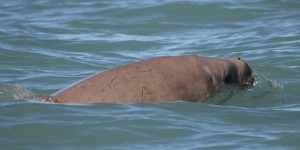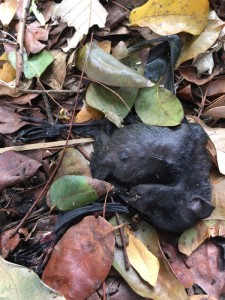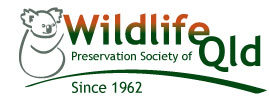WHAT’S COMING UP?
October 17-23rd is the Aussie Backyard Bird Count, a project of BirdLife Australia. All you need is to find 20 minutes during that week and go out into your backyard, nearby park or other birdie site and record the birds that you see.You can do this just once, or as many times as you like, over the week. Find out more here and when you’re ready to register, follow this link.
Tuesday October 18th 12 noon: Science seminar “Under Pressure: Managing Deepwater Seagrasses of the GBR” ATSIP Seminar Room at JCU. Presented by Katie Chartrand, this is one of a series of free weekly seminars at which JCU researchers present their work. For directions or further info call Liz Do on 4753 8655 or Marcus Sheaves 4781 4144.
Sunday October 23rd: Field trip to Mt Elliott. Make sure you fit your Aussie bird counts in before Sunday 23rd so you can join us on this month’s excursion to the Mount Elliot section of Cape Bowling Green NP. If you are new to Townsville and have not visited this National Park before, drive south on the Bruce Highway for 25km and look for the large National Parks sign indicating the access road on the right-hand side of the highway. Follow this road (Alligator Creek Road) a further 5km into the National Park, past the camping area to the picnic (day-use) area carpark. We will follow the walking track approximately 2.5km upstream as far as Cockatoo Creek. Meeting time 8.30am in the picnic area. What to bring: Hat, sunscreen, repellent, water, snacks/lunch, binoculars, camera, swimmers (if so inclined!)
Saturday November 5th: Mundy Creek Landcare Day 4.30-6.30 pm.
Saturday 3rd December: We are planning to end the year with a Hinchinbrook (Zoe Bay) cruise – a 6 hour round trip from Lucinda, with three hours to spend at Zoe Bay and the chance to walk to the bay’s famous pool and waterfall. Access is dependent on tides so we will be departing the Dungeness boat ramp at 9.30am, returning 3.30pm. Cost will be in the region of $100-$120pp (max) with numbers restricted by the boat’s capacity so financial members of the Branch will be offered first choice, but others will be welcome if there are spare seats. This trip will offer a different Hinchinbrook experience to the one enjoyed in 2014. Expressions of interest are needed asap – please email us – these will not be binding but will give us an idea of whether we have enough numbers to go ahead.
Shelly Cove excursion: We had yet another wonderful, and well-attended, low tide discovery trip last month. Our destination was Cape Pallarenda’s Shelly Cove, and our guide was once again John Collins who kept everyone engaged and informed. There was just too much information and too many photographs for only one post, so you can read the overall report here, and delve deeper into the species notes and list here.
 Dugongs – thriving or dying? You may have heard of the 4 reported dugong deaths that occurred in the one week late last month. Yes, we cover those sad events but also bring you some joyful pictures and news from Hinchinbrook Island’s Missionary Bay, one of the most important feeding and breeding grounds for dugong. Read more here.
Dugongs – thriving or dying? You may have heard of the 4 reported dugong deaths that occurred in the one week late last month. Yes, we cover those sad events but also bring you some joyful pictures and news from Hinchinbrook Island’s Missionary Bay, one of the most important feeding and breeding grounds for dugong. Read more here.
Cape York adventure: As mentioned last month I was fortunate to have a wonderful week in the far north a few weeks ago. “By popular demand” (well, a few people did ask) I have posted an account of this experience with a few links for those who would like to find out more – maybe even consider making their own journey next year. Since returning there have been two media reports directly related to threats facing the ancient rock art of the region and one of the Cape’s most endangered birds – both of which we saw and learned about on our trip. Links to those reports are also included. Read more here.
 No life for a baby flying-fox …Despite our pleas to the Townsville City Council, the dawn dispersals at the Palmetum (driving away the bats that try to come in to roost there each morning) have continued into the birthing season of the Black flying-foxes. Sadly this seems to be resulting in a disproportionate number of deaths at the Dan Gleeson Gardens which is too crowded and exposed to make it a safe nursery/maternity colony. These deaths are of infants and adult females, while aborted foetuses and abandoned pups have also been found. As well as caring for survivors, the wonderful flying-fox carers have been storing tiny corpses in their freezers and taking photographs as evidence, to try to convince DEHP of the need to stop this action and its inhumane consequences at least until summer is over.
No life for a baby flying-fox …Despite our pleas to the Townsville City Council, the dawn dispersals at the Palmetum (driving away the bats that try to come in to roost there each morning) have continued into the birthing season of the Black flying-foxes. Sadly this seems to be resulting in a disproportionate number of deaths at the Dan Gleeson Gardens which is too crowded and exposed to make it a safe nursery/maternity colony. These deaths are of infants and adult females, while aborted foetuses and abandoned pups have also been found. As well as caring for survivors, the wonderful flying-fox carers have been storing tiny corpses in their freezers and taking photographs as evidence, to try to convince DEHP of the need to stop this action and its inhumane consequences at least until summer is over.
Cleaning up for Sea Turtles: Five WQ members attended the Sea Turtle Foundation’ s community engagement day at Pallarenda last Sunday, and well done Margaret for bringing some of her scouts along. The beach clean-up (bottles, cans, fishing-line, the ubiquitous thongs and plastic, plastic and more plastic) was followed by presentations from QPWS, sea turtle researchers and Tangaroa Blue. Find out more about their work here.
READING AND VIEWING
Re-wilding: the process of reintroducing wildlife species into areas from which they have long been extinct is controversial, but if done wisely can bring extraordinary benefits. How can the re-introduction of wolves into the Yellowstone National Park change its whole ecosystem, and even the behaviour of its rivers? This 5 minute video gives some fascinating answers.
The secret world of birdbaths: Following the winter observations from the nation’s birdbaths and bird tables read this summary by the lively and enthusiastic researcher, Grainne Cleary of Deakin University.
Are we blind to plants? Do people generally form closer connections and sense of identity with animals rather than with plants? If true, is it really surprising, given that we are part of the kingdom Animalia ? But what are the implications for plant conservation? These questions are raised in a thought-provoking article in Australian Geographic. Read more here [Link expired]




